In June 2024, a very special school reached out, asking EWC to help their staff with inclusive and participatory pedagogic approaches in the context of the systematic stress and traumas of war. Only a month later, the cruelty of war became plain for the world to see, when a missile was launched at Okhmadyt National Children’s Hospital, and the Superheroes School for young patients residing within.
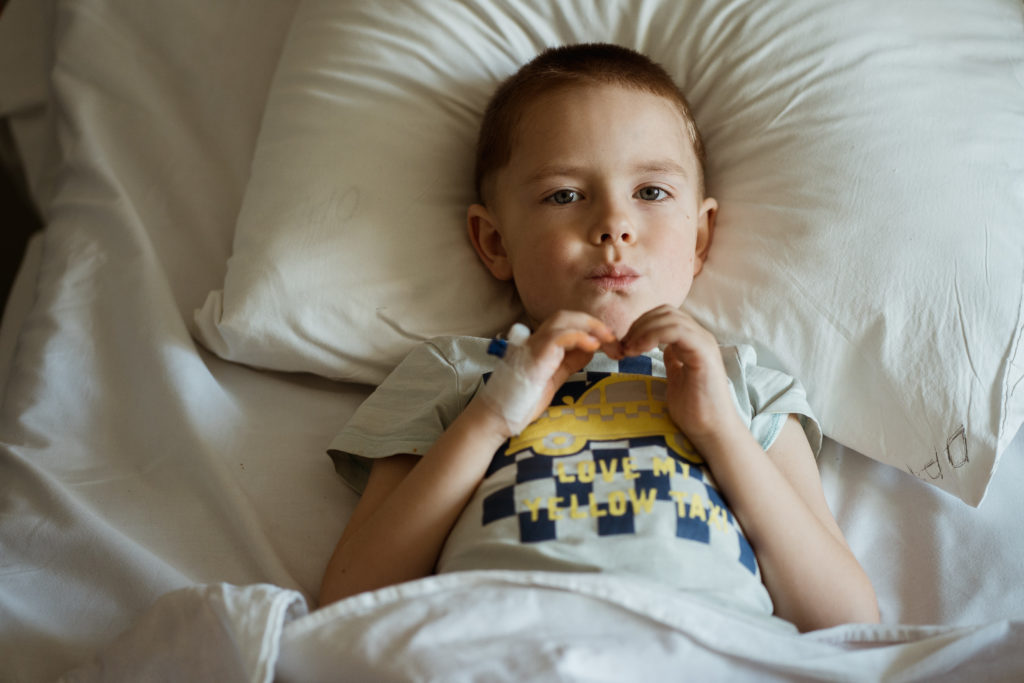
By Veslemøy Maria Svartdal
Even though the Universal Declaration of Human Rights states that everyone has the right to an education, it is not always easy for authorities to deliver adequate services for all. The Kyiv-Based NGO Small Heart with Art established a network of schools to ensure that every Ukrainian child, even those undergoing extended hospital stays, were given an opportunity to learn.
They named the project “Superheroes School” with the first one opening in 2016 at the famous children’s hospital Okhmatdyt. The hospital is known throughout Ukraine for its excellent treatment facilities and its ability to cure even the sickest of patients. It is the largest children’s hospital in Ukraine, treating about 18 000 little patients every year.
Project manager and later Deputy Minister of Education and Science, Evheniya Smirnova, knows from experience what it is like to spend your childhood in a hospital: “When I was a child, I stayed in hospitals every six months. I remember how it felt to be a kid stuck in a hospital,” she told Radio Free Europe.
Her goal was to make hospital stays easier to endure for both children and their parents, and in the end make the Superheroes School a public institution. After six years of advocating, the Superheroes School received state status in 2021. Now the goal is to expand the school network all over Ukraine, reaching every child who want to learn while undergoing treatment.
The Superheroes school employs almost 300 staff members, and since it became state-run in 2021, 15 000 children have attended the classes. The pupils are undergoing treatment for a variety of conditions: Cancer, HIV/AIDS, sexual abuse, organ failure, psychological illnesses, missile, grenade or firearm injuries etc.

“A Portal to Take You to Any Place on Earth”
The idea of the Superheroes School is as easy as it is unique. Children should feel like they enter another world when they come into the school facilities. It should be a space where they would want to spend their time. Donors have made it possible to provide the young students with tablets, big screens, textbooks, board games and toys designed to nurture their minds and their natural curiosity.
The children don’t have to attend classes if they don’t want to, and they only follow the subjects they take an interest in. Grades are not given at the school, but pupils may get help to pass national tests should they need it.
The most important thing for the project is to inspire children to continue learning, to help them take their minds of their illnesses, and to give them the opportunity to socialize with others.
“When you come here, you shouldn’t feel that you are at school or at a hospital,” explained Smirnova to RFE. “It is an alternative space, a portal that can take you to any place on Earth through knowledge and books.”
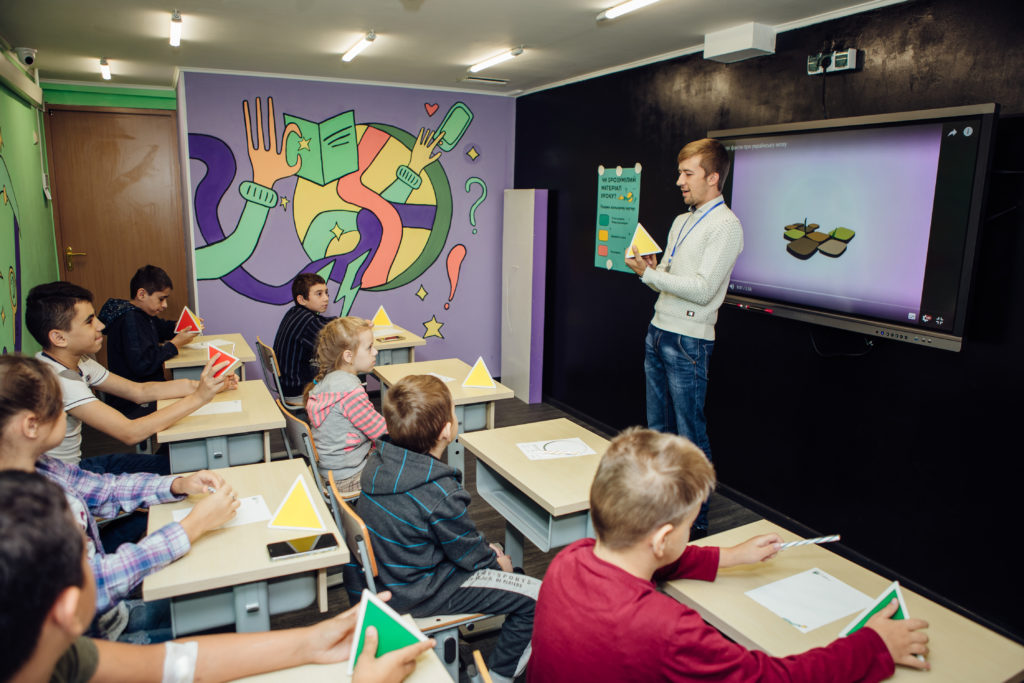
A Call from the Embassy
The full-scale Russian invasion of Ukraine has taken a heavy toll on the country’s education sector. Due to frequent Russian attacks of the Ukrainian energy grid, apartment blocks and school buildings, showing up to school has been a very challenging task for pupils and teachers alike.
Many regions close to the frontline have either had to build classrooms in bomb shelters and metro stations or rely on digital solutions where children learn from home. Constant energy blackouts due to shelling and missile strikes makes it difficult to attend class. Another issue is the adverse impact the war has on the mental health of pupils and teachers. According to a report penned by the UN Office for the Coordination of Humanitarian Affairs, 75 % of parents reported that their children displayed symptoms of psychological trauma.
The same report shows that 90 % of teachers identified their psychological state as ‘deteriorating’ or ‘significantly deteriorating.’

Since its inception, Superheroes School have employed psychologists to help improve the mental state not only of the children, but also of the parents and teachers. Since the full-scale invasion, fear and anxiety due to shelling, lack of basic resources, and worry about the safety of loved ones under occupation or on the front lines, have added to the emotional stress felt by everyone at the Superheroes School.
Wanting to learn from international experience on inclusive education, the Superheroes School reached out to the Ukrainian Embassy in Norway, who again contacted the EWC office in Oslo.
EWC has been active in Ukraine since the Revolution of Dignity in 2014, aiding the country with implementing reforms of the educations sector, and training educators in how to promote democratic principles, human rights and inclusion to their students, through the Schools for Democracy Programme. Since the full-scale invasion in 2022, EWC has had to expand its training offer to include courses for teachers on how to deal with the psychological effects of living in a war zone.
EWC jumped at the chance to support the unique institution, offering opportunities for professional development, and to help the teachers introduce more inclusive and participatory teaching methods while coping with the stress and fatigue of working in such challenging conditions.
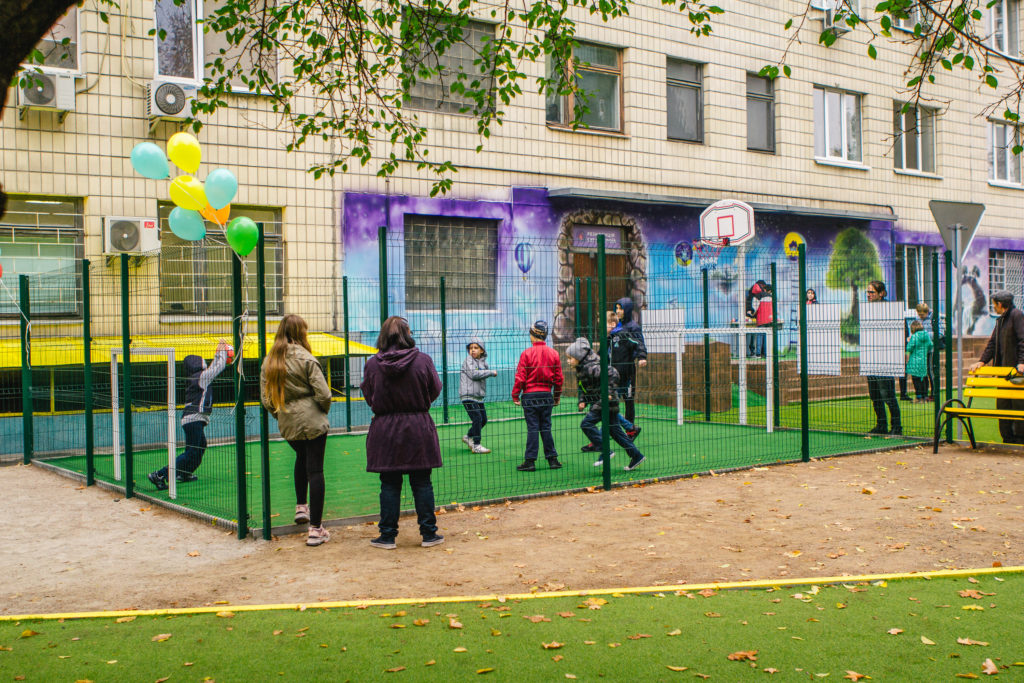
“The School of Superheroes is a young but very ambitious, professional and innovative institution of alternative education,” says Iryna Sabor, Head of Early Childhood and School Section at EWC.
“We felt immediately that we share common values and ideas on education. Also, several our trainers in the Schools for Democracy Programme are also teaching in their school at hospitals,” she smiles.
With the help of EWC, all staff members at the Superheroes School have been able to attend the blended course “Democratic kindergarten: psychosocial support,” when they learn stress resilience, how to communicate with children for them to feel included and empowered, and how to deal with burnout in their pedagogic activity.
Targeting the Most Vulnerable
Earlier this year the nationally beloved and revered Okhmadyt children’s hospital became known to the entire world. On the 8th of July 2024, Russia unleashed more than 40 missiles at the Ukrainian cities Kyiv, Kryvyi Rih, Dnipro, Kropyvnytskyi, and Pokrovsk. One missile hit the hospital, killing two people and injuring 16, including seven children.
Along with several other buildings, the Superheroes School classrooms were destroyed. The library was flooded, and the rest of the facilities were also heavily impacted by the blast. None of the pupils were hurt as they were alerted by air raid sirens and taken to an underground shelter by their teachers.
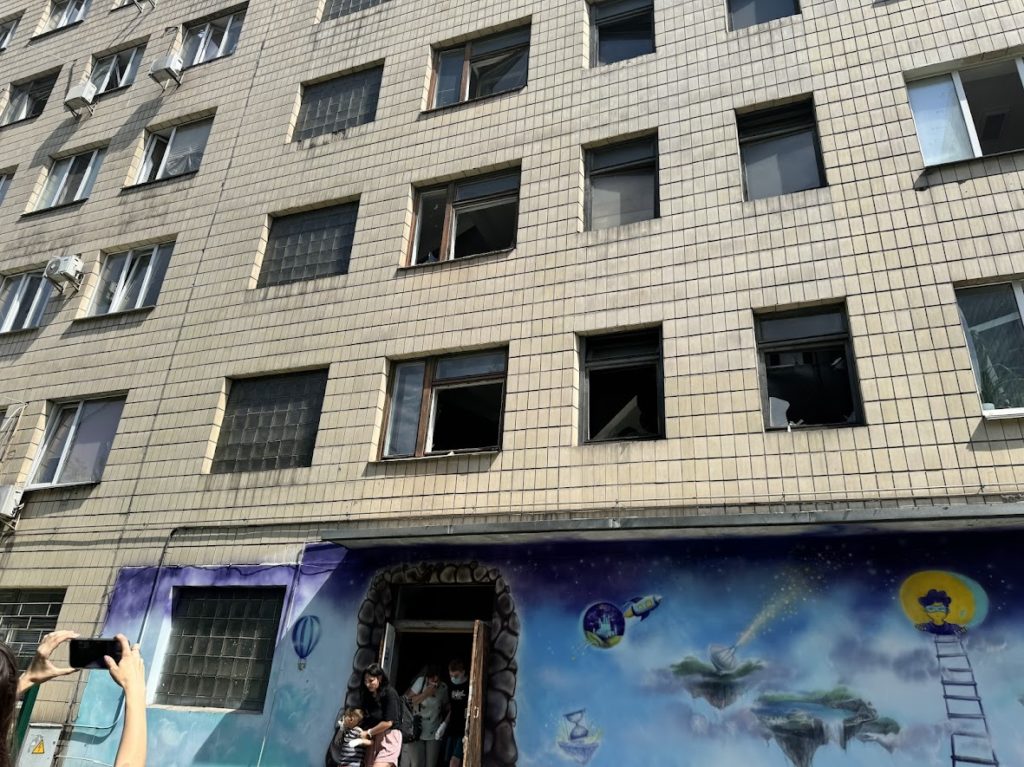
The EWC staff found out about the attack as they were busy planning another course at the Oslo headquarter.
“We all were in shock that day, recollects Iryna Sabor, “the only thought in my head was that I need to do something, at least donate to the hospital fund.”
Before the attack, the school at Okhmadyt included three classrooms, a library of 10 000 books, a playground and a special car to transport sick or disabled children, named “the Supercar”. It had given lessons to more than 820 children before its destruction.
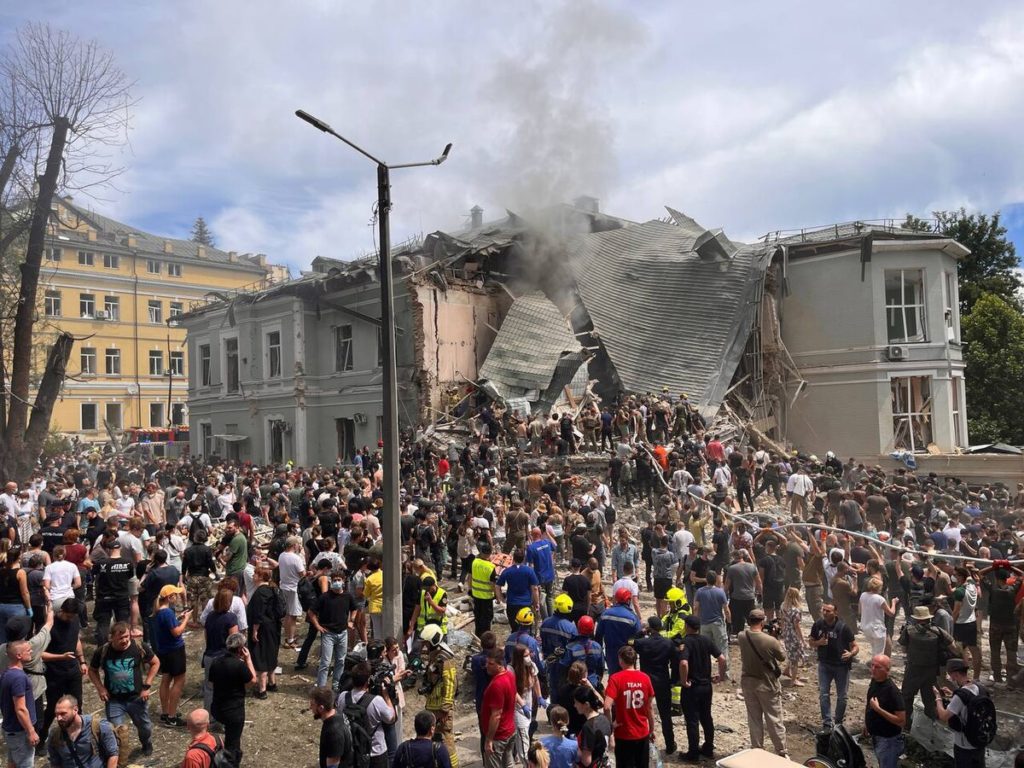
The superheroes are moving forward
Living up to its name, the Superheroes School in Kyiv resumed classes the very next day, in temporary accommodations nearby.
Only a couple of weeks after the missile attack, the school was able to fundraise over a million hryvnia to build a new school in place of the one that was lost.
“I believe, it is important to support them to ensure that they continue to offer quality education for disadvantaged children in these challenging circumstances, says Iryna Sabor when talking about the Superheroes School, before continuing:
“One of the core principles of the EWC is that the inclusion of all is the backbone of democracy. This is what we stand for in Ukraine as well. Now when so many children in Ukraine suffer injuries from Russian aggression, it is even more important to provide meaningful education opportunities for those staying in hospitals over longer periods of time, so that these children do not fall behind, but continue to pursue their interests and dreams, and one day shape the future of Ukraine.”
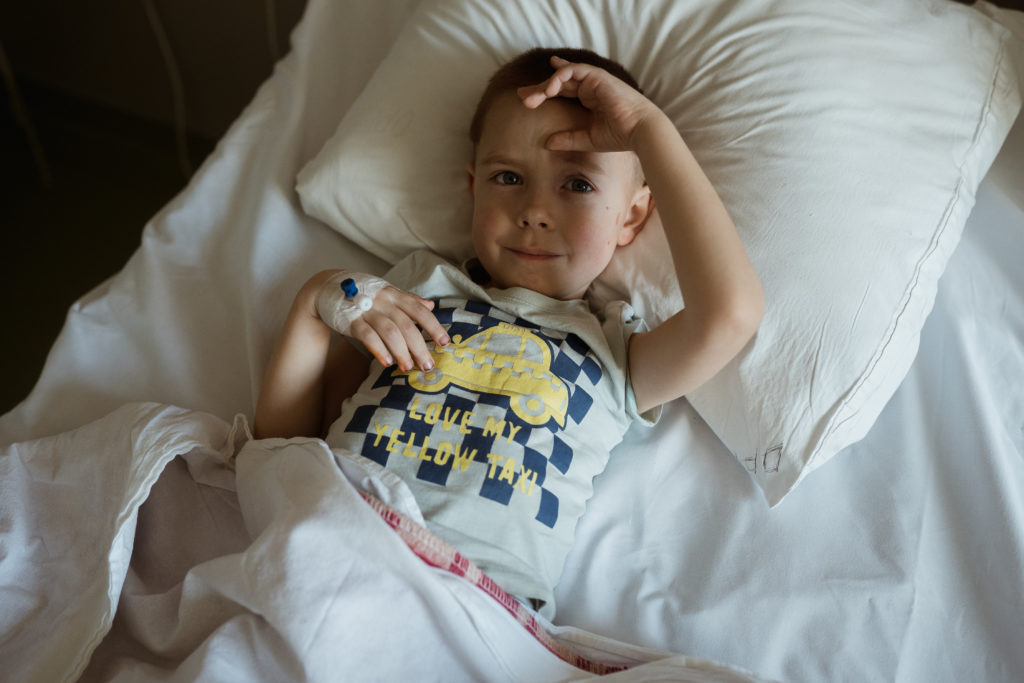
In October 2022 the Superheroes School came under the patronage of the First Lady of Ukraine Olena Zelenska. In the aftermath of the missile strike, her foundation promised they would take on the complete restoration of the Kyiv branch of the school.
This year, The Olena Zelenska Foundation, have already established schools in Rivne, Vinnytsia, Kryvyi Rih, Lviv, Odesa, and Poltava. There are now 15 Superheroes Schools in Ukraine, with plans for further expansion in the works.
“We are looking forward to seeing what kind of support we may offer to the Superheroes school in the future,” says Senior Advisor Marta Melnykevych-Chorna, who is leading EWC’s work on pre-school education in Ukraine.
This initiative is part of the Schools for Democracy Programme. The Programme is implemented by the EWC in cooperation with the Ministry of Education and Science of Ukraine, Center of Education Initiatives (Lviv), Step by Step Foundation Ukraine (Kyiv), and SavED (Kyiv) and is part of Norway’s Nansen Programme for Ukraine. The programme is funded by the Nansen Support Programme for Ukraine. The Nansen Programme belongs to the Norwegian Agency for Development Cooperation (NORAD).